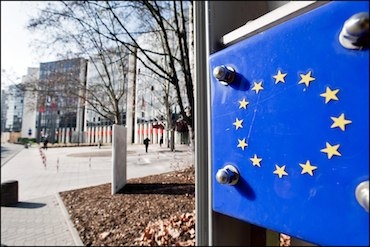An EU referendum opinion poll carried out by a wealth firm found 54 per cent wanted to remain and 46 per cent favoured leaving.
An audience of over 200 people attended a debate hosted by Equilibrium Asset Management, with 139 signalling their voting intentions after. 75 voted remain and 64 opted for leave.
Before the debate took place, 55 people offered their view, with 41 per cent of these saying they intended to vote to leave while 35 per cent indicated they wanted to stay. Some 24 per cent were undecided.
The EU vote takes place tomorrow, with many polls suggesting the race is neck and neck.
Meanwhile, an FPT poll on whether Financial Planners would benefit from a leave vote, has so far found about two thirds saying ‘no’. You can continue to register your votes up until midnight tonight.
Economists Ian Kernohan, from Royal London Asset Management, Michael J. Bell from J.P Morgan Asset Management and Dr Peter Westaway from Vanguard Asset Management participated in the debate, which was chaired by economist John Ashcroft.
They were joined by Conservative MP Graham Brady, Labour MP Graham Stringer and Conservative MEP Sajjad Karim at the debate.
The distinction between goods and services in trade deals negotiated in the event of a Brexit emerged as a key issue.
Speaking about the distinction between goods and services when it comes to negotiating trade deals with the EU in the event of a Brexit, Michael J. Bell, global market strategist at J.P Morgan Asset Management said:
“The EU is the largest part of our trade. We exported in 2014, the latest numbers we have available, £230 billion worth of goods and services to the EU. People argue, well, that’s all very good. We’d actually be able to do a good trade deal with them [if we left] because we run a fiscal deficit with them, in other words we buy more stuff from them.
“So they would want to carry on selling to us and that’s totally true when you look at goods. So the Germans will be very happy to continue selling their cars to us, I don’t think there’s any doubt about that.
“That’s not the issue. The issue is services and we export more services. We exported about £59 billion in services to Europe last year. We imported only £29 billion. That difference is at the core because that is where we benefit and there is not a single country in the world that has done a trade deal with the EU that allows them to freely trade services without accepting freedom of movement, and without, therefore, giving up some sovereignty as well.”
The Leave side was challenged by the audience to outline what they would do to renegotiate trade deals to make sure services could be included.
In response Graham Stringer, Labour MP for Blackley and Broughton, said: “You’re right about our services, the City of London, the legal services and other services. It is vital that we negotiate them. But the fact that we have to negotiate them doesn’t mean to say that we should accept all the paraphernalia around the EU that actually restricts our freedom as a country to grow in different ways.
“So you’re right to point it out, it doesn’t mean we should stay in the EU.”
The debate spanned across four topics; EU rules, regulation and red tape, immigration, sovereignty and democracy and economics and business.
On the topic of EU regulations there was broad agreement between the economists on the panel that a lot of regulation actually came from sources other than the EU.
Dr Peter Westaway, chief economist for Europe at Vanguard Asset Management, claimed that while the perception was that the UK’s membership brought with it excessive regulation, the reality was that the UK was probably one of the least regulated economies in the EU, going on to say:
“A lot of the regulations that we do have are probably regulations that we would want to keep even if we left the EU. There are obviously the ones around social policy – working time directive – yes there’s controversy around that but I think the basic idea of it is sound.
“Regulation around the environment – we don’t really want to tear up those regulations and I think, most importantly, the regulations around banks – it’s not at all clear that it’s Brussels that is putting those upon us. It’s very much the regulatory framework that’s being put on globally.”
However, there have been estimates that predict the UK could save on costs imposed by EU regulation, as highlighted in a report from the Open Earth think tank highlighted by Ian Kernohan, economist at Royal London Asset Management.
He said: “A couple of think tanks on the leave side have attempted to estimate how much we could save through leaving the EU and reducing regulation.
“Two estimates, one from an economist for Brexit was as much as eight per cent of GDP, which is an enormous figure, a less aggressive estimate from the Open Earth think tank was about two per cent of GDP so they obviously think that there is some saving we can make.”

